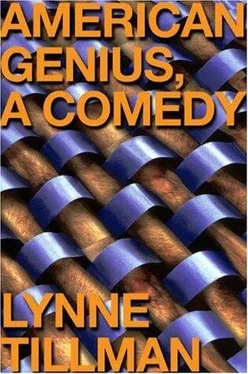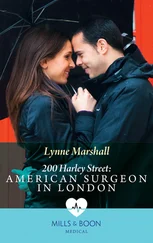The shopkeeper's dress is wool cambray, coarse and brown, a simple design with no excess, no flounces or decoration, a studiously severe outfit like that which might have been worn by a Puritan prison guard, and she also wears a stiff bonnet tied under her chin with a gray grosgrain ribbon, whose serrated edges sink into her fleshy neck, reddening her olive skin at those points. In this town and the environs, the textile industry flourished from the beginning of the 19th century, when the region was home to many mills, as well as ball-bearing factories, and none of this is now evident except as historical lore on plaques. The town and state has many rivers and streams, great water power for running mills, and Eli Whitney may have passed through; his cotton gin is mentioned in the town's brochures, though it wasn't invented here. Rows of warping machines dwarfed child workers, whose fingers and hands must have bled from cuts, their soft skin hardened and scarred over time from the process of carting, spinning and sorting the rough raw materials, cotton and wool, into threads, yarns, and finally fabrics, while the multitude of spindles revolving in spinning rooms whirred and cranked noisily during the ten- to twelve-hour workdays. In 1860, not far from here, in Lowell, Massachusetts, there were more cotton spindles than in all the eleven states that combined would eventually make up the Confederacy, so the North had an industrial advantage, though both white Northerners and Southerners mostly disdained skins darker than theirs. In America the Industrial Revolution proceeded with strength only after the Civil War ended, and the first textile factory workers were like indentured servants. Max Weber theorized it was slavery that brought about the end of the Roman Empire, as Rome's troops were complemented by their slaves who needed to be fed and housed when they advanced, so they weren't productive labor, they didn't fight, but instead slowed the Roman army and cost it dearly, and slavery might have similarly ruined the American economy as it industrialized, since slavery was part of an agrarian society. In the postcard tray I search for something I might send the Polish woman, who wouldn't expect attention or remembrance from me, since she never thinks of me, and I sometimes believe she doesn't know my name, but because of that I'd like to mail her a pleasant card, since I do think of her. Choosing it prolongs my stay in the shop, and while I ramble about, the kitchen helper has probably left the cafe, as the shopkeeper tugs at her uncomfortable dress, looking at me with suppressed impatience, and at last I settle on a postcard with a pastoral scene that might be appropriate to the taste of the Polish aesthetician. The shopkeeper smiles now, relieved, and soon she'll ask me to return, which I will, but on a long-ago visit to a similar shop in the South near a similar town, where fate was summoned when I rejected a man's advances, I'd accompanied a widow whose husband had been a renowned scientist, who herself had written essays on science, popularizing the subject for the lay reader, as she put it, and after he died, she often spent time away from what had been their home, but then relief was not the outcome of our visit to this shop. The widow was ordinarily restrained, yet in the store marveled broadly and audibly about an object concocted by one of the town's craftspeople, of wood and paper, which, when she picked it up to see it better, crumbled in her hands and fell to the floor, ruined. The shopkeeper demanded she pay for it, and my friend, the widow, refused, at first calmly, since she had not misused it, she declared, or hurt it in any way, but then neither character relented, and when the irate shopkeeper reached for the telephone to call the police, the circumspect widow, who was then my friend, and I walked quickly to her car at whose door she wept from humiliation, collapsing in my arms, because standing up for herself had drained her of life. I never went back there, to the store or the town, though I think of it, because the woman was shattered by the experience, which reiterated earlier ones, and, shortly after our disastrous outing to the store, she returned to the place where she was lonely without her husband, who, she also confessed in her car, had drunk to insensibility most of his life, was cruel and violent, and where she once was the subject of an investigation, based on circumstantial evidence, when coincidentally she fled from her husband's drunkenness on the same night a robbery occurred in the town where she lived with him, relative newcomers, and she happened to be noticed in the middle of the night, wandering upset and aimlessly in the small town, and became a suspect, though she was merely in the wrong place at the wrong time, but circumstantial evidence stained her present with an enduring blot.
I pay for the English language book, along with a boy's story, Adrift in New York, by Horatio Alger, which begins auspiciously, "Uncle, you are not looking well tonight," as well as the pastoral postcard that I hope to mail but could also tack on my wall, and the shopkeeper nods her head under the stiff hat and mutters that her costume smells of mothballs, and, in a sweeping, balletic gesture, shucks off the stiff hat, revealing her flattened hair, which makes her seem childlike, hairless like a newborn, though some are born with full heads. I don't ever wear a hat, though I might if I'd been ordered, lost a bet, or was paid a million dollars. I look silly in them. My vanity is exhausting, it sits uselessly in me, since the body lies, certainly the eye does. Ruskin wrote, "All literature, art, and science are vain, and worse, if they do not enable you to be glad." Veins and vanity lie deep beneath our skins but can be more visible and on the surface in some of us. The pale blue veins on the backs of Contesa's creamy beige hands delineate her script, since she believes much of life is told in and by the body, with which, in a sense, I concur, but her mysticism isn't mine. She believes mostly in what can't he known or seen, which also can't be entirely dismissed, and in the numina which establish their spiritual, ghostly, or ethereal presence wherever she is, and this reality is confirmed and evinced by the fact that, when she found her Kafka, who died of tuberculosis, she contracted pneumonia, and her lungs inflamed in a physical emulation of her intimate tie to him. Now she has the beginnings of emphysema.
I haven't told her about the tarot card reader. His oracular statements echo and vibrate internally, just for me, and their truths or falsehoods are also mine, that is, I know I am also, I live as, in some sense, my arbitrary selection of his predictions. The tarot card reader's blemishes weren't distracting, they were not even notable, it was mostly his hands and lopsided mouth I watched when he announced, portentously, Ah, let's see what happens. He contemplated the three rows of cards and explained that there was the past, present, and future. The high cards were in the middle, the past on top, and there were the qualifiers, the details, he said, which he explained but which I didn't catch even as he spoke. A woman sat in the middle, he said, that's you, but he didn't look at me then, for which I was glad. He told me that fives were not bad, since they were in the middle range, and I had two fives on either side of the present or the past, but I remember he said: Coins dot the table, you have more of those than anything else; and logically, I thought, he started at the past, where, he said, lifting up a card, there was the last judgment. Look, the angel is blowing his horn into the skies and the dead are rising out of their coffins.
Even now this harrowing image sits inside many others, but maybe it won't come to pass too soon.
It was the recent past that the cards showed, which was behind what lay before us, like a settling of accounts after which you could clear the table. I liked this idea of clearing the table of the past. I also like tables, but not as much as chairs. This suggests, he continued-he looked me in the eye-some epoch has closed. I thought of many things, including the man who no longer lived with me whose presence was a comfort and a bother, or comfort itself was a bother, as I fear complacency, and so I threw out the baby with the bathwater, when I should have, I'd heard, kept the bathwater. The reader now said, You may he starting something new-it is not a break, a rupture, but in the sense we use the word now, a closure or resolution, and so the thing has been completed and makes some ground from which to proceed. These characters are resurrecting into a new life in heaven. They're not just finished. But this period is done for you.
Читать дальше












